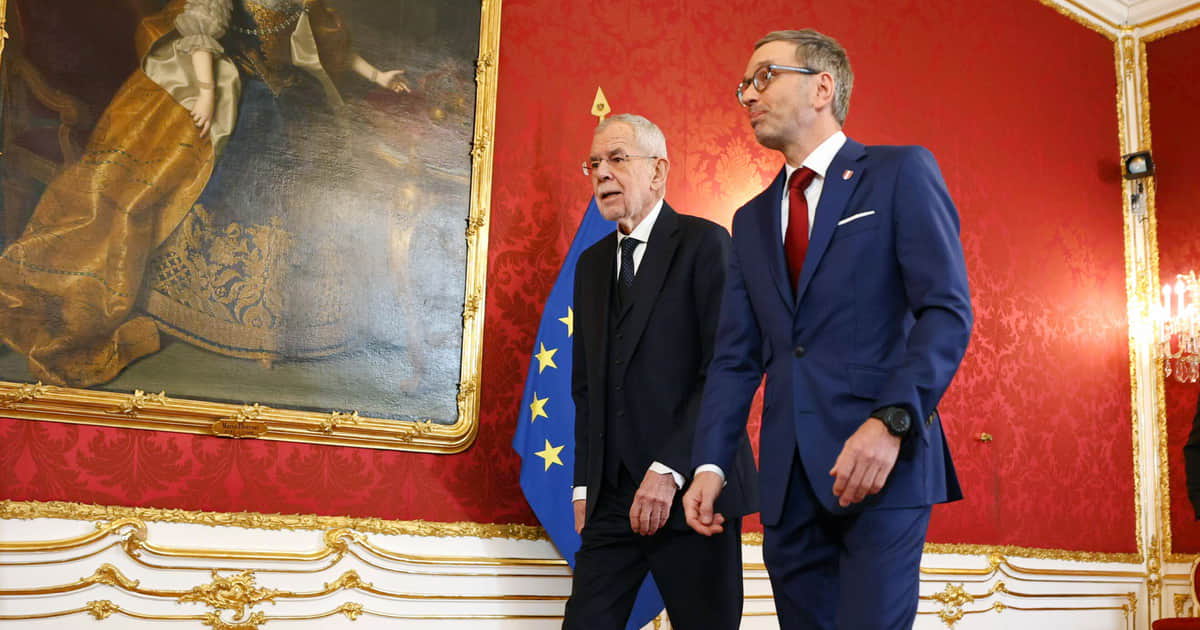How the far-right rises to power in Austria and what it means for Ukraine

Austria has experienced two major political upheavals in less than 100 days. In late September, for the first time in the country's history, the openly pro-Putin Austrian Freedom Party (FPO) won parliamentary elections. Initially, it seemed that the worst had been avoided - a coalition was expected to be formed without the radicals.
However, that attempt failed. Current Chancellor Karl Nehammer, who was leading the coalition negotiations, announced his resignation as both head of government and leader of the party. Advertisement:
So the far-right has a real chance to take charge of the government. Read more about the rise of Austria's far-right and the risks posed to Ukraine by having an openly pro-Russian leader in an EU member state in the article by Khrystyna Bondarieva, a European Pravda journalist - Austrian catastrophe: why a far-right opponent of Ukraine may lead the country's government. The Austrian Freedom Party, founded in the 1950s by former national socialists, has previously been part of several governments but always as a junior coalition partner.
This time, however, things are different. In the 29 September elections, the Freedom Party achieved a historic victory, winning a record 57 seats (+26 compared to the 2019 elections) and pushing Chancellor Karl Nehammer's Austrian People's Party (OVP) into second place. The ruling party lost 20 seats, securing only 51 mandates.
In the third place came the Social Democrats with 41 seats, followed by the liberal NEOS party with 18 seats. A coalition was initially expected to form between the People's Party, Social Democrats and liberals. However, after months of negotiations, the effort failed, as many had predicted.
Last week, Chancellor Nehammer not only declared the coalition talks dead but also announced his resignation as party leader and head of government. Christian Stocker, the new leader of the conservatives, has expressed readiness to accept an invitation from the far-right Freedom Party to begin coalition negotiations. This marked a dramatic shift in the party's direction and a breach of a key pre-election promise by many of its members.
Although coalition negotiations between the People's Party and the Freedom Party have not yet officially begun, this scenario is now the most likely-though not guaranteed to succeed, despite the similarity of their economic programs. There are significant differences between the two parties, with the main point of contention being their stance on the EU and Ukraine. The Freedom Party is sceptical of the European Union and wants to reform it.
Herbert Kickl, the leader of the far-right party, would, as an EU summit participant, decide how Austria votes on key EU decisions, including those related to Ukraine. Until now, Austria's position has been pro-Ukrainian. Kickl, however, advocates for the "immediate cessation" of hostilities (even at the expense of Ukraine's interests), accuses the US and the EU of escalating the war, demands the lifting of sanctions against Russia, and calls for the resumption of energy cooperation with Moscow.
Under Kickl's chancellorship, Austria's policy toward the Russian-Ukrainian war is expected to mirror that of Viktor Orban's Hungary. If coalition negotiations fail again, Austria will enter a period of prolonged political instability. Potential new elections could either prolong the government crisis or further strengthen the far-right's position.
If you notice an error, select the required text and press Ctrl + Enter to report it to the editors.